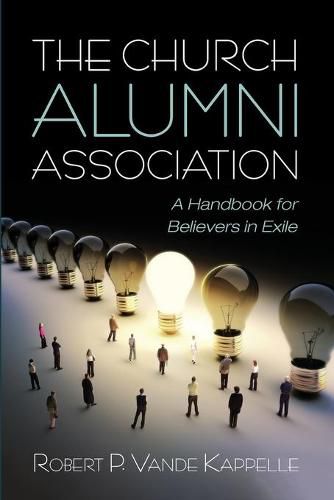Readings Newsletter
Become a Readings Member to make your shopping experience even easier.
Sign in or sign up for free!
You’re not far away from qualifying for FREE standard shipping within Australia
You’ve qualified for FREE standard shipping within Australia
The cart is loading…






This title is printed to order. This book may have been self-published. If so, we cannot guarantee the quality of the content. In the main most books will have gone through the editing process however some may not. We therefore suggest that you be aware of this before ordering this book. If in doubt check either the author or publisher’s details as we are unable to accept any returns unless they are faulty. Please contact us if you have any questions.
Many people today, including Christians of deep conviction, are deciding, for one reason or another, to stop attending church. They have been swept up by the avalanche in America known simply as the
nones,
thereby joining the ranks of the religiously unaffiliated dubbed the
church alumni association –or perhaps more accurately
believers in exile –by Anglican Bishop John Shelby Spong. Research shows that during the first two decades of the twenty-first century, a seismic shift occurred in the U.S. population away from religious institutions and toward disaffiliation. While the causes and effects of this dislocation are varied and numerous, by 2015, the phenomenon of shrinking faith communities was so widespread that
nones
became the third largest religious identity in the world, behind Christians and Muslims. Today there are more religious
nones
than Catholics or evangelicals, and 36 percent of those born after 1981 do not identify with any religion. Does this shift mark a loss of spirituality, or do these changes point to a new global religious awakening, one that affirms religious pluralism and views faith relationally rather than dogmatically–as a way of the heart and not of the head? While some Christians are staying put, experiencing the current shift in traditional church settings, this book proposes a new understanding of the church, a new pattern and vision for Christian living and thinking that can transform our understanding of God, others, nature, and ourselves. Useful for individual or church study, each chapter of The Church Alumni Association concludes with questions for discussion and reflection.
$9.00 standard shipping within Australia
FREE standard shipping within Australia for orders over $100.00
Express & International shipping calculated at checkout
This title is printed to order. This book may have been self-published. If so, we cannot guarantee the quality of the content. In the main most books will have gone through the editing process however some may not. We therefore suggest that you be aware of this before ordering this book. If in doubt check either the author or publisher’s details as we are unable to accept any returns unless they are faulty. Please contact us if you have any questions.
Many people today, including Christians of deep conviction, are deciding, for one reason or another, to stop attending church. They have been swept up by the avalanche in America known simply as the
nones,
thereby joining the ranks of the religiously unaffiliated dubbed the
church alumni association –or perhaps more accurately
believers in exile –by Anglican Bishop John Shelby Spong. Research shows that during the first two decades of the twenty-first century, a seismic shift occurred in the U.S. population away from religious institutions and toward disaffiliation. While the causes and effects of this dislocation are varied and numerous, by 2015, the phenomenon of shrinking faith communities was so widespread that
nones
became the third largest religious identity in the world, behind Christians and Muslims. Today there are more religious
nones
than Catholics or evangelicals, and 36 percent of those born after 1981 do not identify with any religion. Does this shift mark a loss of spirituality, or do these changes point to a new global religious awakening, one that affirms religious pluralism and views faith relationally rather than dogmatically–as a way of the heart and not of the head? While some Christians are staying put, experiencing the current shift in traditional church settings, this book proposes a new understanding of the church, a new pattern and vision for Christian living and thinking that can transform our understanding of God, others, nature, and ourselves. Useful for individual or church study, each chapter of The Church Alumni Association concludes with questions for discussion and reflection.